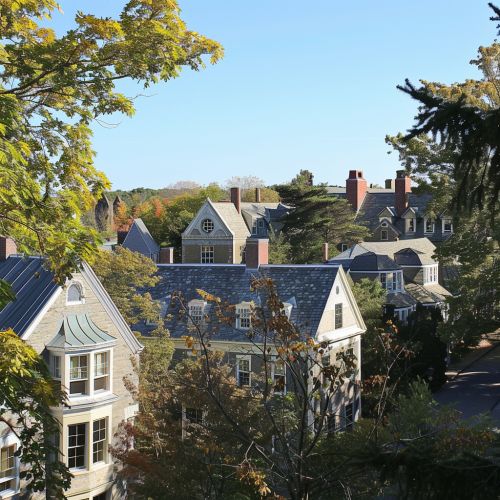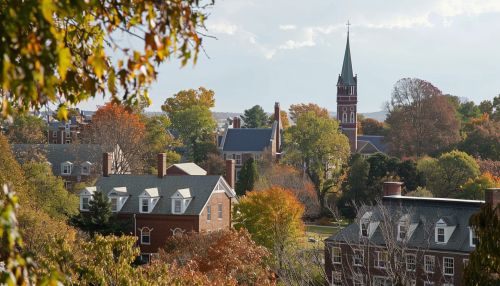Bowdoin College
History
Bowdoin College, a private liberal arts college located in Brunswick, Maine, was chartered in 1794 by the Massachusetts State Legislature. The college was named after Governor James Bowdoin, a political and intellectual leader of the Revolutionary Era. Governor Bowdoin's son, James Bowdoin III, was a significant benefactor of the college.


The college officially opened its doors in 1802, with an inaugural class of eight students. Over the years, Bowdoin College has grown and evolved, expanding its curriculum and facilities to meet the changing needs of students and society. The college's history is marked by a commitment to intellectual inquiry, inclusivity, and public service.
Academics
Bowdoin College offers a broad and rigorous curriculum in the arts, humanities, natural sciences, and social sciences. The college has 33 majors and four additional minors, and it offers joint engineering programs with Columbia University and Dartmouth College. Bowdoin's academic program emphasizes close interaction between students and faculty, with a student-faculty ratio of 9:1.
The college's academic philosophy is based on the concept of a liberal arts education, which aims to cultivate critical thinking, creativity, and intellectual curiosity. Bowdoin's academic program is designed to foster a deep understanding of complex issues and to prepare students for leadership and service in a diverse and interconnected world.
Campus
Bowdoin's campus comprises approximately 215 acres and includes a variety of architectural styles, from historic 19th-century buildings to contemporary structures. The campus is home to several notable landmarks, including the Walker Art Building, which houses the Bowdoin College Museum of Art, and the Peary-MacMillan Arctic Museum.
The college's residential life is organized around a system of eight residential halls and a variety of college-owned houses. Bowdoin also has extensive athletic facilities, including the Sidney J. Watson Arena, the Peter Buck Center for Health and Fitness, and the Whittier Field and Magee-Samuelson Track.
Student life
Bowdoin College has a vibrant and diverse student life, with over 100 student clubs and organizations. These include academic clubs, cultural and diversity organizations, performing arts groups, and recreational clubs. The college also has a strong tradition of community service, with many students participating in volunteer programs and service-learning courses.
Bowdoin's athletic teams, known as the Polar Bears, compete in the NCAA Division III New England Small College Athletic Conference (NESCAC). The college offers a range of varsity sports, as well as club sports and intramural programs.
Notable alumni
Bowdoin College has produced many notable alumni in a variety of fields. These include U.S. President Franklin Pierce, poet Henry Wadsworth Longfellow, and Arctic explorer Robert E. Peary. Other distinguished Bowdoin alumni include Pulitzer Prize-winning author Anthony Doerr, former U.S. Senator George J. Mitchell, and Netflix CEO Reed Hastings.
